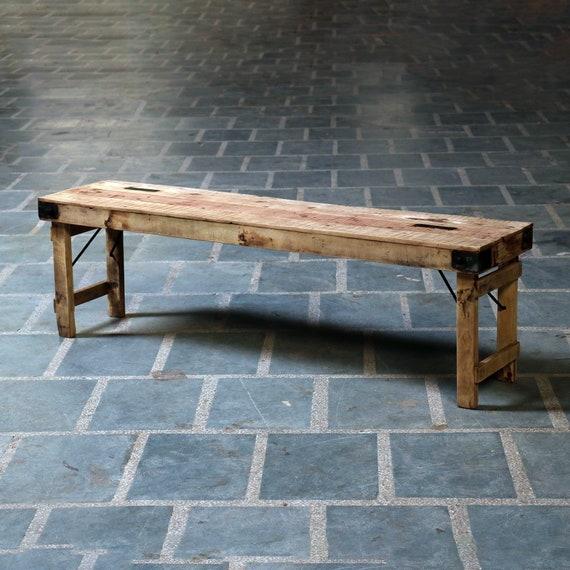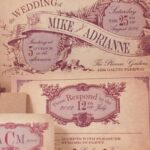In a world dominated by sleek electronics and fast-paced innovations, there exists a quiet allure in the craftsmanship of days gone by—the vintage fly rod. These elegant fishing tools, often handcrafted with meticulous attention to detail, whisper stories of serene rivers and sunlit afternoons spent in pursuit of elusive trout. As many anglers strive to capture the essence of their sport through contemporary gear, a growing appreciation for vintage fly rods reveals a longing for heritage, artistry, and the tangible connection to nature. This article delves into the enchanting world of vintage fly rods, exploring their history, significance, and the timeless appeal that continues to resonate with both seasoned fishermen and newcomers alike. Join us as we cast our lines back in time to uncover the beauty and craftsmanship of these enduring symbols of angling tradition.
The Allure of Vintage Fly Rods in Modern Angling
The charm of vintage fly rods lies in their character and craftsmanship that transcend the mere functionality of modern fishing gear. Crafted with a unique blend of wood, silk, and often hand-tied components, these rods tell stories of the waters fished and the fish caught. Many anglers are drawn to the reliability and performance of these rods, finding that the emotional connection to the past enhances their fishing experience. The aesthetics of a vintage rod—a polished bamboo finish or ornate reel seat—often evoke nostalgia and appreciation for the artistry involved in their construction.
Moreover, using vintage fly rods in today’s angling scene fosters a deeper connection to traditional fishing practices. With features that highlight the era’s innovation, such as lighter materials and specific action tailored for various fly techniques, these rods offer not just a rod but a glimpse into fishing history. Anglers appreciate the subtle nuances they bring to casting and presentation, often finding that they enhance their skills and understanding of the sport. This revival of interest has also led to a community of collectors and users who share knowledge, tips, and tales, creating a rich tapestry woven from the threads of both past and present fishing culture.
| Aspect | Vintage Fly Rods | Modern Fly Rods |
|---|---|---|
| Materials | Bamboo, wood, silk | Graphite, fiberglass, synthetic |
| Craftsmanship | Handcrafted, artisanal touches | Mass-produced, standardized |
| Action | Slow to moderate | Quick to fast |
| Connection | Emotional, historical | Performance-driven |
Understanding the Craftsmanship Behind Vintage Fly Rods
The artistry of vintage fly rods goes far beyond mere functionality; it is an intersection of passion, tradition, and innovative craftsmanship that has been honed over generations. Each rod is often a labor of love, made from high-quality materials such as bamboo, fiberglass, or graphite, all carefully selected for their unique properties. The skilled artisans who create these rods employ techniques that have been passed down, combining ancient craftsmanship with modern insights to achieve characteristics that enhance both performance and aesthetics. Some key features of these rods include:
- Material Selection: The choice between natural bamboo and synthetic options can greatly influence the rod’s action and sensitivity.
- Blank Construction: The method used to create the rod’s blank affects its strength and flexibility, determining how it handles under pressure.
- Artistic Detailing: Custom wrapping, finials, and unique reel seats not only add beauty but also speak to the rod’s heritage and custom nature.
In addition to the meticulous attention to detail in materials and construction, the legacy of vintage fly rods is enriched by their stories and the skilled hands that shaped them. Many renowned brands and craftsmen have carved out a niche in the world of fly fishing, each contributing to a rich tapestry of tradition. Retro design traits often featured in these rods include:
| Feature | Description |
|---|---|
| Weight Distribution | Balanced design ensures ease of casting. |
| Grip Design | Comfortable cork grips that enhance user experience. |
| Reel Seat | Traditionally crafted for optimal line management. |
Key Materials and Techniques Used in Timeless Designs
When it comes to vintage fly rods, the charm lies not only in their aesthetic appeal but also in the exceptional materials and craftsmanship behind them. Bamboo is often the material of choice, prized for its flexibility and responsiveness, providing anglers with a sensitive touch. The method of flaming, or heat-treating bamboo, enhances its strength and durability while adding a rich patina. Additionally, hand-woven silk threads are frequently used to create guides, ensuring a smooth line transition during casting. The cork grips, shaped and molded by hand, contribute to both comfort and performance, making each rod a bespoke masterpiece tailored for the avid fisher.
Techniques from the past play a crucial role in the production of these classic rods. Hand-wrapping silk guides and tips with meticulous attention to detail ensures lasting quality and aesthetic charm, while varnishing provides protection and a glossy finish, showcasing the intricate wood grain. Craftsmen often incorporate traditional reel seats made from brass or wood, which not only serve a functional purpose but also add to the rod’s vintage allure. The seamless blend of these exquisite materials and artisanal techniques not only preserves the heritage of fly fishing but elevates it to an art form cherished by collectors and enthusiasts alike.
How to Choose the Right Vintage Fly Rod for Your Style
Choosing the right vintage fly rod requires considering your personal fishing style, preferred water types, and the species you aim to target. Begin by evaluating the action of the rod, which can greatly influence your casting techniques and sensitivity. Generally, you have three options:
- Slow Action: Ideal for delicate presentations and shorter casts.
- Medium Action: Offers versatility, suitable for various casting environments.
- Fast Action: Best for long-distance casts and larger flies, providing more power and accuracy.
Next, assess the length of the rod, as this impacts your casting distance and control. Vintage fly rods typically range from 7 to 9 feet, with longer rods aiding in better line management on larger waters. Additionally, consider the line weight that corresponds to your preferred fishing techniques; this can usually be found on the rod itself. Here’s a quick guide to help match rod length, action, and line weight:
| Length (ft) | Action Type | Recommended Line Weight |
|---|---|---|
| 7’0″ | Slow | 2-4 wt |
| 8’0″ | Medium | 4-6 wt |
| 9’0″ | Fast | 6-8 wt |
Preserving and Caring for Vintage Fly Rods
Vintage fly rods hold a rich history and require special attention to ensure they remain in excellent condition. To preserve these beautiful pieces, it is crucial to keep them free from moisture, dirt, and harmful UV rays. Here are some essential tips for proper care:
- Cleaning: Use a soft cloth to gently wipe down the rod, avoiding harsh chemicals that could damage the finish.
- Storage: Store rods in a protective tube and keep them in a cool, dry place to prevent warping or breaking.
- Inspection: Regularly check for any signs of wear and tear, such as frayed guides or loose wrappings.
- Handle with Care: Avoid pulling or yanking the rod when casting; instead, use smooth, controlled motions.
For those looking to restore a vintage fly rod, it’s important to strike a balance between maintaining its authenticity and ensuring functionality. Consulting with a professional restoration expert can provide insight into what repairs are essential and which should be left untouched. Consider the following restoration tips:
- Original Parts: Whenever possible, keep original components to preserve historical value.
- Finish: If a re-finish is necessary, choose a method that is compatible with the rod’s materials.
- Documentation: Maintain records of any restorations to retain historical context for future owners.
Exploring the Market: Where to Find Authentic Vintage Fly Rods
When it comes to discovering genuine vintage fly rods, enthusiasts often embark on a treasure hunt that can lead them to a variety of fascinating locales. One of the best places to begin your search is at antique shops and flea markets. These venues can be gold mines, often hiding rare finds amid an eclectic mix of items. Pay attention to specialty shops that focus on fishing gear; these stores usually have knowledgeable staff who can help authenticate your potential purchases. Additionally, consider local angling clubs and fishing expos, where collectors often showcase their equipment and may be willing to sell pieces from their own collections. Networking with fellow anglers can also yield leads on where to find hidden gems.
Online platforms have revolutionized the way collectors source equipment. Websites such as eBay, Etsy, and specialized forums offer a plethora of listings, but buyer beware—make sure to do your due diligence. Look for sellers with stellar feedback and ask for detailed photos or additional history of the rods you’re interested in. Another avenue to explore is social media groups dedicated to vintage fishing gear. These communities can connect you with long-time collectors and seasoned anglers, often leading to private sales or auctions. With patience and a keen eye, navigating these resources can elevate your collection of vintage fly rods.
Q&A
Q&A: All You Need to Know About Vintage Fly Rods
Q: What are vintage fly rods?
A: Vintage fly rods are fishing rods that were manufactured in a previous era, typically before the 1980s. These rods are often characterized by their unique craftsmanship, materials, and designs that reflect the technology and aesthetics of their time. Many anglers cherish them for their historical significance, aesthetic appeal, and nostalgic value.
Q: What materials are commonly used in vintage fly rods?
A: Vintage fly rods were predominantly crafted from materials like bamboo, fiberglass, and, to a lesser extent, earlier types of wood. Bamboo rods, in particular, are highly prized due to their strength, flexibility, and traditional handcrafting methods used in their production.
Q: How can I determine the age of a vintage fly rod?
A: Determining the age of a vintage fly rod often involves examining markings or labels affixed to the rod. Many manufacturers stamped their logo, model name, and sometimes the date on the shaft. Additionally, consulting catalogs or guides that specialize in vintage fishing gear can help establish the rod’s era and significance.
Q: Are vintage fly rods functional for modern fishing, or are they just collectibles?
A: Many vintage fly rods are still entirely functional and can deliver an excellent fishing experience. Anglers who appreciate the craftsmanship and feel of these rods often choose to fish with them. However, it’s essential to note that the performance may vary based on the rod’s condition and the angler’s familiarity with vintage equipment.
Q: What should I look for when buying a vintage fly rod?
A: When purchasing a vintage fly rod, consider factors such as the rod’s condition, brand reputation, length, and action. Inspect for any signs of damage, such as cracks or broken guides. Research the manufacturer to understand the rod’s value and historical context. Whether you’re looking for functionality or collectible quality, thorough examination enhances your investment.
Q: How should I care for and maintain a vintage fly rod?
A: Caring for a vintage fly rod involves gentle handling and proper storage. Clean the rod after each use, ensuring to wipe off any dirt or grime. Store it in a protective case or tube to prevent damage. If you plan to store it for an extended period, ensure it is in a dry, moderate environment to prevent moisture and temperature-related damage.
Q: What are some repercussions of using vintage fly rods in today’s fishing conditions?
A: Using vintage fly rods can present both charm and challenge. While they may provide a unique fishing experience, factors like line compatibility, reel advancements, and modern fishing techniques may necessitate adjustments. Anglers might encounter performance differences compared to contemporary rods, thus highlighting the importance of adaptability and skill.
Q: Can you recommend popular brands or models of vintage fly rods?
A: Certainly! Some renowned brands include Hardy, Orvis, and Fenwick, each with iconic models like the Hardy Palakona and Orvis Battenkill. These rods are revered not just for their quality but also for their historical importance within the angling community. Collectors often seek these brands due to their legacy and craftsmanship.
Q: Where can I purchase vintage fly rods?
A: Vintage fly rods can be found at specialized fishing shops, estate sales, flea markets, and online marketplaces such as eBay or specialized auction sites. Joining local fishing clubs or online forums focused on vintage equipment can also yield helpful connections and tips for acquiring these treasured pieces.
Q: Why do anglers cherish vintage fly rods so much?
A: Anglers often cherish vintage fly rods for their craftsmanship, historical significance, and the nostalgia they evoke. The artistry of handcrafted rods reflects a time when fishing was both a necessity and a sport. Many enthusiasts are drawn to the stories these rods tell, linking generations of anglers with shared experiences on the water.
Closing Remarks
As we gently reel in the line on our exploration of vintage fly rods, it becomes clear that these timeless pieces of craftsmanship are about more than just functionality; they embody stories of anglers past, the rivers they’ve graced, and the landscapes they’ve traversed. Each rod carries with it a unique history, a testament to the artistry that blends tradition with the pursuit of adventure.
Whether you’re an avid collector or simply an admirer of the intricate blend of wood, cork, and metal, embracing vintage fly rods invites you into a world where every cast is a connection to the past. So the next time you find yourself by a tranquil stream or a roaring river, consider the rich legacy that lies in your hands—a legacy that not only enhances your fishing experience but also whispers the tales of the generations before you. In the delicate dance of fly fishing, may you find both solace and inspiration, cradled within the embrace of a vintage rod. Happy fishing!


